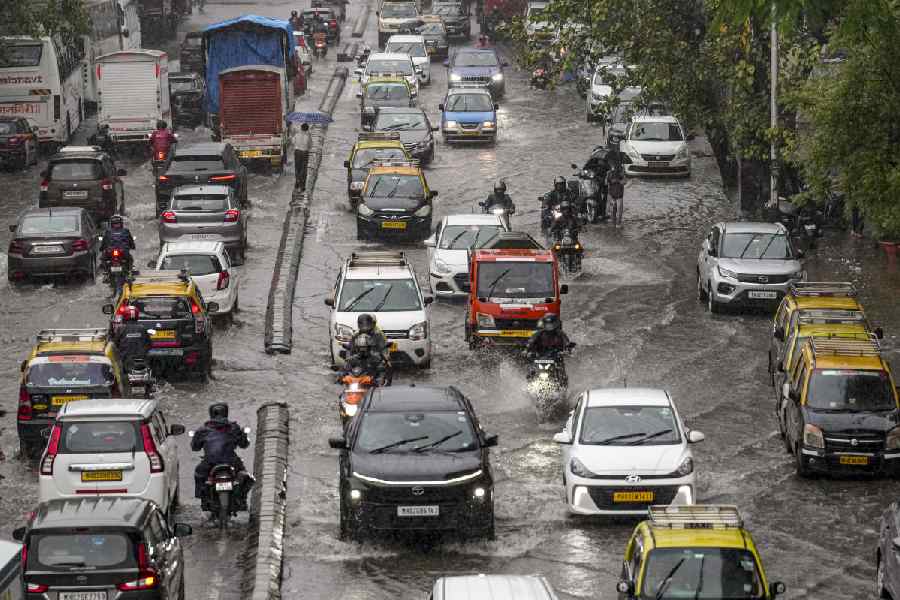Private vehicles continue to dominate the roads of Mumbai, with two-wheelers and cars accounting for nearly 88 per cent of the city's 50 lakh-plus vehicle population, while public transport buses make up less than a per cent, as per a report.
According to the Brihanmumbai Municipal Corporation's "Environment Status Report 2024-25", Mumbai's vehicle population crossed the 50-lakh mark in 2024-25, a gradual rise from 45,37,211 in 2023 and 47,59,976 in 2024 to 50,54,907 as of March 2025.
The report, released earlier this week, stated that of these, two-wheelers (59.34 per cent) and cars, jeeps, and station wagons (28.72 per cent) together make up nearly 88 per cent of the city's vehicles.
The remaining vehicles included 5.02 per cent autorickshaws, 3.27 per cent taxis, 0.42 per cent goods vehicles, 0.02 per cent tractors/trailers, and 2.72 per cent vehicles categorised as other.
At least 2.94 lakh new vehicles were registered in Mumbai between April 2024 and March 2025, reflecting a significant rise of 6.2 per cent in registration, the report stated.
Of the newly registered vehicles, 60.87 per cent were two-wheelers, followed by cars, jeeps, and station wagons at 23.94 per cent, taxis and cabs made up 6.26 per cent, autorickshaws 3.06 per cent, and goods vehicles 4.43 per cent.
Buses accounted for 0.73 per cent of the total, with tractors/trailers and other vehicles contributing just 0.09 per cent and 0.6 per cent, respectively.
As per the report, the highest number of 39.83 lakh (78.79 per cent) vehicles run on petrol, followed by 5.63 lakh (11.15 per cent) on diesel and 4.36 lakh on CNG.
Mumbai has just 48,854 electric vehicles, followed by 11,418 that run on LPG and 10,832 on other fuels.
The report also pointed out that the Brihanmumbai Electric Supply and Transport (BEST) undertaking was operating a total of 2,731 buses till the end of March. These buses include 612 owned by the BEST and 2,119 operating under the wet-lease model.
Notably, 91 per cent of the total fleet of BEST consists of environment-friendly CNG and electric buses.
"By the end of 2027, the entire BEST fleet will comprise electric buses. This will help to reduce the pollution of Mumbai city as 3,18,296 tonnes of CO2 per year will be reduced by these buses," the report stated.
Except for the headline, this story has not been edited by The Telegraph Online staff and has been published from a syndicated feed.

